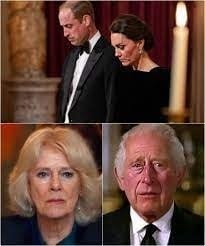Donald Trump’s Suggestion to Rename the Gulf of Mexico Sparks Debate
Donald Trump’s recent proposal to rename the Gulf of Mexico as the “Gulf of America” has ignited a fiery debate, drawing reactions from supporters and critics alike. The suggestion, part of a broader effort to promote “American greatness,” has raised questions about national identity, international diplomacy, and the importance of preserving historical context.
The idea gained traction after Trump signed an executive order aimed at “restoring names that reflect the extraordinary heritage of the United States.” While the move was intended to celebrate the country’s achievements, it quickly drew criticism for being potentially provocative toward neighboring nations, including Mexico and Cuba, both of which share access to the Gulf.
A Push for Patriotic Renaming
In the executive order, Trump emphasized the need to commemorate America’s past through the naming of natural landmarks and historic sites. He stated, “Our nation’s breathtaking natural wonders and historic achievements should honor the contributions of visionary Americans who helped shape our country’s legacy.”
One of the more prominent suggestions in the order was to restore the name of North America’s tallest peak to “Mount McKinley” in honor of President William McKinley. Another was the proposal to rename the Gulf of Mexico to the “Gulf of America.”
Explaining the reasoning behind the latter, Trump declared, “The Gulf has been instrumental in shaping America’s economy and future. It’s a flourishing economic resource, critical to our nation’s prosperity. Renaming it reflects its significance to the American people.”
Backlash and Diplomatic Concerns

The proposal, however, has not been met without resistance. Mexico’s President, Claudia Sheinbaum, responded firmly, stating, “He can call it the ‘Gulf of America’ on their continental shelf, but for us and the rest of the world, it remains the Gulf of Mexico.”
The Gulf is more than just a geographical feature; it’s a symbol of shared history and collaboration among the United States, Mexico, and Cuba. It serves as a critical hub for international trade, fishing, and oil production. Changing its name would involve complex diplomatic discussions and could strain relationships between the bordering nations.
Critics of the idea argue that such a move prioritizes nationalism over global cooperation. One political analyst commented, “This feels like an unnecessary provocation that undermines centuries of cultural and historical ties.”
Environmental advocates have also weighed in, suggesting that efforts should focus on addressing the Gulf’s ecological challenges rather than renaming it. The region has faced significant environmental threats, including oil spills, overfishing, and the impacts of climate change.
Supporters See a Bold Symbolic Move
Despite the criticism, there are those who view the renaming as a bold expression of American strength and independence. Proponents argue that such a gesture could enhance national pride and serve as a reminder of the Gulf’s economic importance to the United States.
A Broader Conversation
While the proposal is still speculative and unlikely to materialize without significant international agreement, it has sparked meaningful discussions about the role of symbolism in national identity. The debate raises important questions: Should historical names be altered to reflect modern priorities, or should they remain untouched to preserve their legacy?
As the world watches, this controversial idea serves as a reminder of the delicate balance between honoring heritage and respecting international partnerships. Whether the Gulf remains tied to its historical name or adopts a new identity, the conversation underscores the complexities of how nations represent themselves on the global stage.
https://x.com/AdamJSmithGA/status/1881395747012391149?ref_src=twsrc%5Etfw%7Ctwcamp%5Etweetembed%7Ctwterm%5E1881395747012391149%7Ctwgr%5Ed885c942993a71de9acf8aa386bf1da1461e8724%7Ctwcon%5Es1_c10&ref_url=https%3A%2F%2Fpathapk.com%2Fmexicos-president-reacts-to-trump-renaming-gulf-of-mexico%2F





